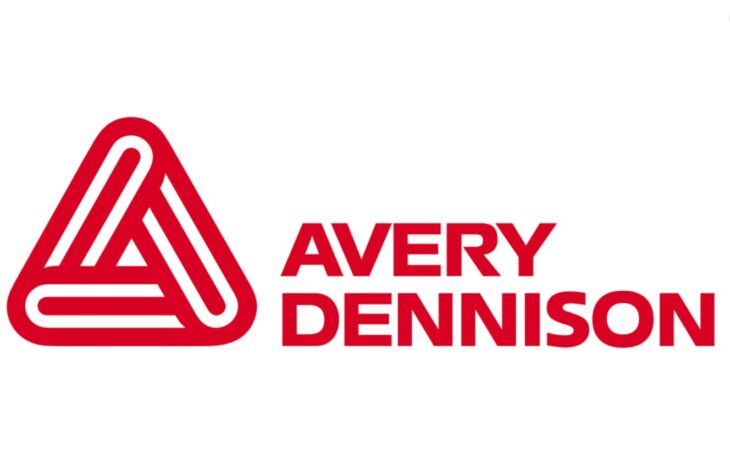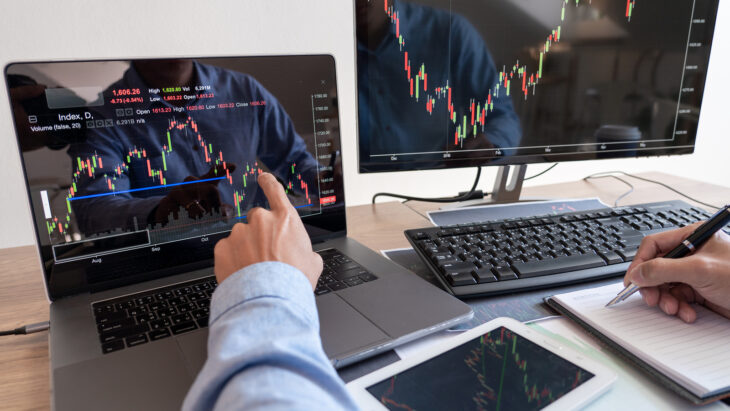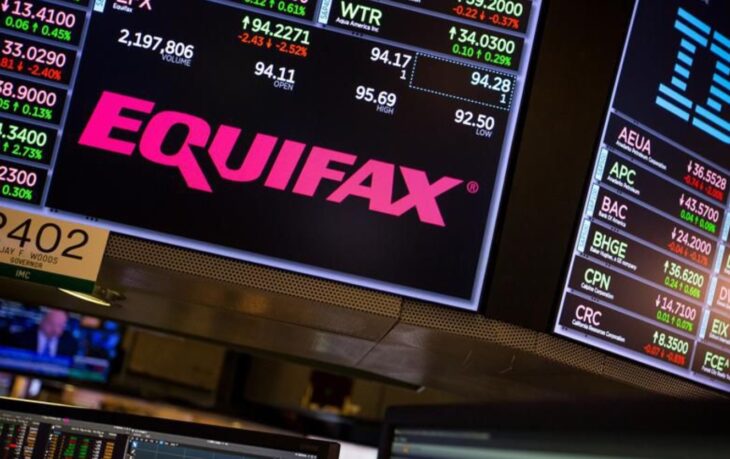Contents
Avery Dennison Corp. (NYSE: AVY)
Avery Dennison Corp. (NYSE: AVY), a provider of packaging products and services that began operations in 1935. According to the stocks portal beststocks.com the company generates revenue through sales of adhesive materials, logo branding solutions, and inventory tracking solutions (RFID security tags), and its products are used in a variety of industries, including retail, automotive, industrial, and healthcare. However, we believe that the improved outlook is already reflected in the stock’s valuation, and that caution is warranted. We would consider an upgrade in the event of a significant non fundamental pullback in the shares.

Source: Business Wire
Recent Developments
EPS topped an estimate of $1.32 and the consensus of $1.54, positioning itself as one of the best stocks to buy. The year-over-year improvement in operating earnings reflected cost-cutting and margin expansion in the LGM business and stronger sales in the RBIS division.
Third quarter revenue was $1.729 billion, down from last year’s $1.761 billion but above the consensus of $1.705 billion. The adjusted operating margin rose 100 basis points to 12.3%, primarily due to cost-cutting measures.
Label & Graphic Materials (LGM), Retail Branding & Information Solutions (RBIS), and Industrial & Healthcare Materials (IHM). LGM accounted for 67% of 2019 sales, RBIS for 23%, and IHM for 10%.
The LGM segment posted net sales of $1.145 billion, reflecting the impact of restructuring and productivity initiatives. Typical products in this segment are label and packaging materials and reflective adhesives for road signs and emergency response vehicles.
The RBIS division reported net 3Q sales of $426 million, down 5% from the prior year, and an operating profit of $47 million, up from $46 million a year earlier. Sales were hurt by lower apparel demand. The adjusted operating margin fell 20 basis points to 11.0%. The segment provides customers with sustainable packaging and logo embellishing services, along with RFID security tags for tracking inventory.
The IHM segment reported net 3Q sales of $158 million, down from $170 million in the prior-year quarter. The adjusted operating profit fell 29% to $13 million, and the adjusted operating margin dropped 250 basis points to 7.9%. The IHM segment sells healthcare-related tapes and industrial-related tapes & fasteners.

Source: Atlanta SEO Expert
Earnings & Growth Analysis
Management has not provided specific 2024 guidance, but said that its businesses are prepared for a range of possible macroeconomic scenarios. It currently expects sales to decline in 2024, with the low point in the second quarter, though it now looks for full-year earnings to increase from 2019. The company expects 4Q sales to be similar or slightly better than in the third quarter.
Looking ahead, we expect sequential improvement in 4Q, but remain concerned about the unpredictable impact of the pandemic. The consensus forecast is $6.60.
We note that AVY’s businesses have historically rebounded quickly in the year following a recession. The company has also taken additional steps to control costs and conserve cash during the pandemic.
Financial Strength & Dividend
The company’s next significant debt payment of $250 million is slated for April 15, 2024. We believe that the debt load is manageable.
The company repurchased 0.4 million shares for $45 million in 1Q20 and 2.2 million shares for $238 million in 2019, but did not repurchase any stock in 2Q20, reflecting the impact of the coronavirus and weak capital markets.

Source: bestforex.broker
Management & Risks
Mitch Butier has been the chairman and CEO of Avery Dennison since 2014 and Greg Lovins has served as CFO since 2017. Both have worked at the company for most of their careers.
Investors in AVY shares face risks. The company is growing organically as well as through M&A, introducing integration risks. It may also see limited benefits from its cost-saving initiatives, which it has used to boost earnings in the past. AVY relies on product innovation to drive revenue and earnings. If it becomes unable to develop and market new products, results could suffer.
With approximately 77% of revenue generated outside the U.S.
Company Description
Avery Dennison Co. generates revenue through the sale of adhesive materials, logo branding solutions, and inventory tracking solutions (RFID security tags). The company’s products are used in a range of industries, including retail, automotive, industrial, and healthcare.

Source: annuity
Valuation
Avery Dennison shares have traded between $76.96 and $145.45. The shares reached near-term highs in early February 2024 and again in mid-February, but plunged during the March selloff. They have generally trended higher since that time.
Equifax Inc. (NYSE: EFX)
Equifax Inc. (NYSE: EFX), a global provider of information solutions for businesses, governments, and consumers, is HOLD. The company has greatly increased its debt load over the past few years as it has worked to rebuild in the wake of the mid-2017 cybersecurity scandal. Because of these recent events the company is not longer a top stock in the market. While the changes appear to have moved the company forward, the timing of the COVID-19 pandemic may prove troublesome given the company’s relatively high leverage. Furthermore, while the stock has risen strongly from a low near $103 in late March, it now appears to be facing significant resistance. As such, we are reiterating our 12-month HOLD rating.

Source: Forbes
Recent Developments
The beta on EFX is 1.15. On October 21, Equifax posted 3Q adjusted EPS of $1.87, up 26% from the year-earlier period and $0.27 above consensus. Revenue of $1.07 billion was up 22% on a reported and local-currency basis. The company-wide adjusted EBITDA margin rose 270 basis points to 36.6%.
Management has provided partial fourth-quarter guidance. It expects 4Q revenue to be up 9.5%-11.5%, implying adjusted EPS of $1.40-$1.50.
Earnings & Growth Analysis
Equifax organizes its business into four segments: USIS (approximately 36% of 3Q20 operating revenues), Workforce Solutions (35%), International (21%), and GCS (8%).
Third-quarter revenue in the USIS segment was up 22%, while the operating margin rose 220 basis points to 33.3%. The results reflected 22% growth in Online Information Solutions, 51% growth in Mortgage Solutions, and 1% growth in Financial Marketing Services. In Workforce Solutions, revenue rose 57%, and the operating margin rose 10% to 51.3%. The increase in revenue was driven by 63% growth in verification services and 37% growth in employer services.
In the International segment, revenue fell 5% on a reported and local-currency basis, and the operating margin rose 30 basis points to 11.6%. Revenue fell 9% in Europe, 18% in Latin America, and 1% in Canada. Revenue rose 4% in the Asia Pacific region. The smallest segment, GCS, saw revenue decline 2%.

Source: unsplash.com
Financial Strength & Dividend
The adjusted profit margin rose 90 basis points to 22%. Third-quarter operating cash flow rose to $649 million, while free cash flow was $339.5 million. Moody’s downgraded the company’s debt to Baa2/stable from Baa1/negative in April 2024. Standard and Poor’s has rated it as BBB/negative since March 2019.
Equifax pays a quarterly dividend, but has not raised its payout since late 2016. The annualized payout of $1.56 yields about 1%.
Equifax has historically repurchased stock on an opportunistic basis. However, following the cyber breach in September 2017, it decided to halt share repurchases.
Management & Risks
Mark Begor is Equifax’s CEO, having assumed the role on April 16, 2018. Mr. Begor succeeded Paulino do Rego Barros, Jr. who had served as interim CEO following the retirement of Richard Smith in September 2017 in the wake of the data breach. Mr. Begor previously served as managing director at Warburg Pincus following a 35-year career with General Electric. Mark Feidler is the nonexecutive chairman. John Gamble, Jr. has been vice president and CFO since May 2014. He was previously executive vice president and CFO of Lexmark International.
Investors in EFX shares face risks. Equifax’s credit reporting solutions face competition from Experian and TransUnion. Other competitors in this area include LifeLock, a national provider of personal identity theft-protection products, and Credit Karma, which offers free credit scores. In the commercial segment, its primary competitors are again Experian, as well as Dun & Bradstreet and Cortera, and in employment verification services, it faces competition from Verify Jobs and First Advantage. The company is also likely to be impacted by the coronavirus, e.g., through a reduction in credit checks as some companies freeze hiring and reduced consumer purchases of big-ticket items in a weak economy.
Equifax also continues to face challenges stemming from the 2017 data breach, though it has made substantial progress in resolving these issues. During 3Q, costs related to the incident totaled $63 million. Equifax has incurred more than $1.78 billion in data breach costs since 3Q17.
Equifax may suffer a long-term blow to its reputation based on its response to the hack. Since May 2019, both Moody’s and Standard & Poor’s have downgraded the company’s outlook to negative from stable as a result of increased costs and financial losses from the data breach.

Source: fox
Company Description
Equifax is a global provider of information and credit reporting solutions for businesses, governments and consumers. Founded in 1899 as Retail Credit Company and based in Atlanta, the company has approximately 11,200 employees.
